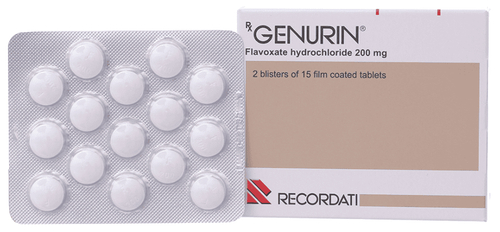This is an automatically translated article.
Ciprobay 400mg drug belongs to the group of drugs for parasites, anti-infectives, antivirals and antifungals. Ciprobay medicine contains the main ingredient is Ciprofloxacin with a concentration of 400mg/200ml, prepared as a solution for intravenous infusion. Let's find out in detail about the use of Ciprobay 400mg
1. Indications for taking Ciprobay 400mg
Ciprobay 400mg drug is indicated for use in the following cases:
Pneumonia, pleurisy, lung abscess, bronchitis, superinfected bronchiectasis, exacerbation of chronic bronchitis. Acute and chronic glomerulonephritis, prostatitis, cystitis . Otitis media, sinusitis caused by gram(-) bacteria. Gonococcal infections Skin and soft tissue infections. Infectious diarrhea Cholangitis Peritonitis Adnexitis Osteoarthritis Septicemia Treatment and prevention of infection in immunocompromised patients. Intestinal disinfection. Treatment of complicated urinary tract infections, severe acute pneumonia caused by Pseudomonas aeruginosa, nephritis caused by Escherichia Coli. Do not use Ciprobay in the following cases:
Allergy, hypersensitivity to any ingredient in the drug and substances of the Quinolone group. Children are growing. Concomitant use with Tizanidine.
2. Dosage and how to use Ciprobay effectively
2.1. How to use Ciprobay drug is used for intravenous infusion. The infusion time is usually more than 1 hour and when administered intravenously reduces patient discomfort and reduces the risk of irritation.
Ciprofloxacin solution can be infused directly or mixed with other compatible solutions.
Must be sterilized before injection and when injecting must not penetrate through blood vessels, otherwise vascular necrosis will occur.
2.2. Dosage Patients should take Ciprobay medicine as prescribed by a doctor, pharmacist or refer to the following dosage:
In case of infection of organs and organizations:
Adults: Use Ciprofloxacin 2 times a day. Respiratory, urinary complications, genitourinary, diarrhea and other infections: 400mg Ciprofloxacin / time. Uncomplicated urinary tract: 200mg Ciprofloxacin / time. Children and adolescents:
Cystic fibrosis with infection: 3 x 10 mg Ciprofloxacin/kg body weight. Urinary complications, pyelonephritis: dose from 3 x 6 mg/kg to 3 x 10 mg/kg. The maximum should not exceed 400mg of Ciprofloxacin/dose. Renal failure:
CC 30 - 60 ml Ciprofloxacin/min: Up to 800 mg/day. CC < 30ml/min: Up to 400 mg/day Continuous outpatient peritoneal dialysis: 50 mg Ciprofloxacin/liter dialysate, 4 times/day, every 6 hours.
Duration of treatment:
Adults: Use 1 day with uncomplicated acute gonorrhea. Use 7 days with kidney, urinary tract, abdominal infections. Osteomyelitis use up to 2 months. Other infections take 7-14 days. Children and adolescents: Cystic fibrosis: 10-14 days. Severe urinary tract infections, nephritis should take Ciprofloxacin for 10-21 days. 2.3. Management of missed doses, emergency Patients very rarely miss a dose. However, if you miss a dose, make up for it when you remember, pay attention to make up for the missed dose after 1-2 hours. In the course of use, if the patient uses an overdose, they may experience symptoms such as nausea, vomiting, diarrhea, etc. Please contact your doctor or pharmacist immediately when experiencing the above symptoms. In addition, patients need to be monitored renal function, urine pH to prevent crystalluria, adequate rehydration. Only <10% of Ciprofloxacin is eliminated by hemodialysis or peritoneal dialysis.
3. Ciprobay drug interactions
Ciprobay drugs can cause some of the following interactions:
Macrolide drugs, tricyclic antidepressants, antipsychotics, Quinolone antibiotics can increase this effect of the drug, increase adverse effects on cardiovascular . Probenecid, Clozapine, Tizanidine, Theophylline, Cyclosporin, other Xanthine derivatives in combination with Ciprofloxacin all increase accumulation in the body, increasing the risk of side effects. Using Phenytoin with Ciprofloxacin may increase or decrease Phenytoin levels depending on the individual patient. Combining Ciprobay with NSAIDs, when used in high doses, can cause convulsions except Acetylsalicylic Acid. Vitamin K Antagonists: Increases anticoagulation of the drug, which varies with factors such as underlying infection, age, and total body page of the patient. Patients should have their INR checked regularly during treatment and at the end of treatment. Oral antidiabetic agents (mainly Sulfonylureas): The hypoglycemic effect is enhanced by concomitant administration of both drugs. Caution and close monitoring is required when taking Ciprofloxacin with, Ropinirole, Duloxetine, Sildenafil: Ciprofloxacin inhibits CYP450 1A2 Isozyme. Co-administration of Ciprofloxacin with Lidocaine resulted in a decrease in intravenous Lidocaine clearance by 22%. Patients should inform the doctor, pharmacist of the drugs or dietary supplements they are taking for effective treatment.
4. Side effects when using Ciprobay medicine
During the use of Ciprobay medicine, patients may experience some side effects such as:
Diarrhea, vomiting, abdominal pain, decreased appetite, stomach pain Headache, trouble sleeping, agitation, dizziness Floating rash, urticaria, itching, herpes convulsions Joint pain Increased liver enzymes, liver failure, jaundice Phlebitis Injection site reactions Fungal infections Kidney damage, joint pain Light sensitivity Anemia, confusion , depression, anxiety Tachycardia Rare: Hemolytic anemia, psychosis, agranulocytosis, anaphylaxis, coordination disorder, color disturbance, hearing loss, pancreatitis, weakness muscle, tendonitis,... Unknown: Peripheral neuropathy, peripheral polyneuropathy, ventricular arrhythmia, QT prolongation, torsades de pointes, increased INR, generalized pustular rash. Immediately notify the doctor about the side effects that the patient experiences so that they can take timely measures.
5. Precautions when using Ciprobay
Here are some notes before using Ciprobay medicine.
Do not use Ciprofloxacin for pregnant and lactating women. Because, there are not enough data on the drug to cause toxicity or malformation to the fetus or not. Therefore, use Ciprofloxacin only when absolutely necessary. According to reports, Ciprofloxacin is excreted in breast milk, which may adversely affect joint cartilage with the development of young children. Breast-feeding should be discontinued before taking Ciprofloxacin. In the case of using Ciprofloxacin for children and adolescents, it should be used as directed by a doctor or pharmacist. Do not use Ciprofloxacin for children with kidney failure, liver failure. When treating serious infections, infections caused by Gram (-) bacteria and anaerobic bacteria, it is necessary to combine with other antibiotics, not the drug alone. Ciprofloxacin is recommended in patients with Streptococcus Pneumoniae infection. Age factor is also one of the reasons for reducing the effectiveness of Ciprobay drug, increasing adverse drug reactions, especially affecting joint cartilage. Ciprofloxacin may affect the ability to drive and use machines, due to side effects such as headache, dizziness, dizziness, etc. Do not use when the drug changes color, changes in cheek labels, runs out. expiration date,... In case of adverse side effects, users need to stop taking the drug and need to listen to advice from a doctor or pharmacist. Store Ciprofloxacin in a dry place, temperature < 30 degrees C, protected from light. Keep Ciprofloxacin out of reach of children.
Please dial HOTLINE for more information or register for an appointment HERE. Download MyVinmec app to make appointments faster and to manage your bookings easily.













